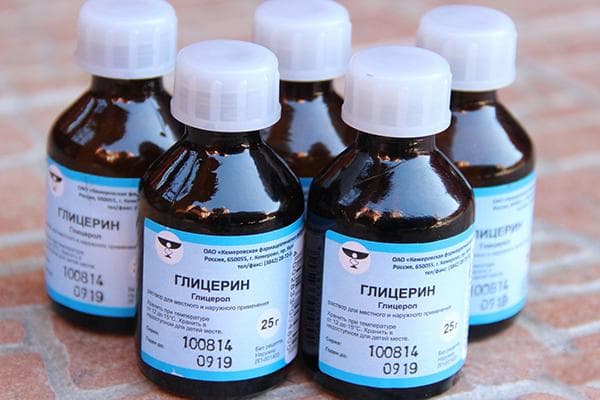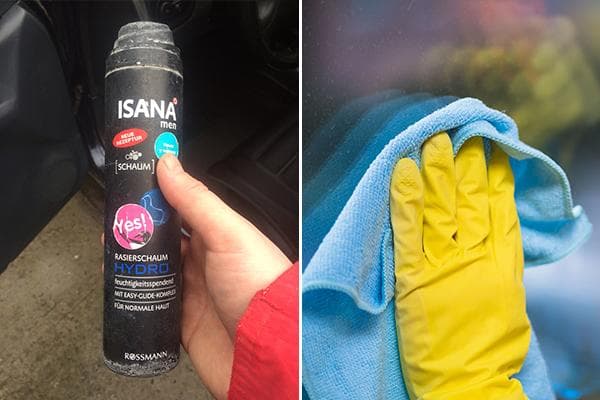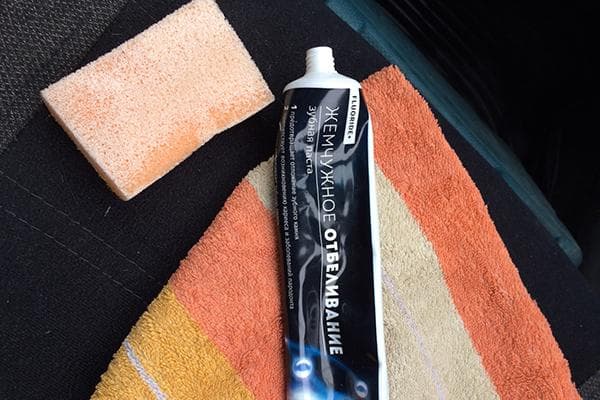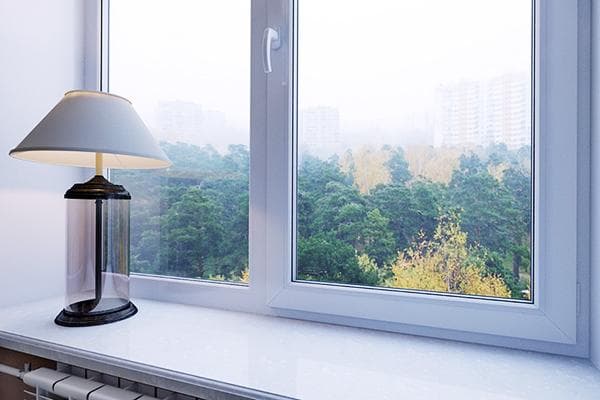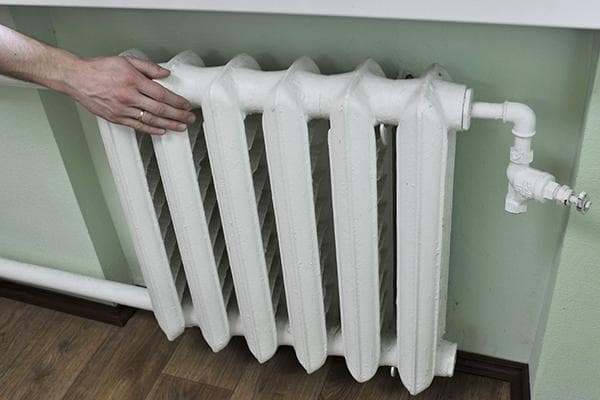How to treat plastic windows against fogging: 5 simplest remedies
Content:
Windows covered with sweat not only impair your view, but can also cause mold to grow in your home. Many housewives are concerned about the question: how to treat plastic windows against fogging? Any product that forms a slippery film on the surface will help: soap, glycerin, shaving foam. Droplets of moisture will not be able to stay on the glass, and the window will remain transparent under any circumstances.

What to rub glass with?
The problem of window fogging can be solved in different ways. Folk remedies are very popular, the ingredients for which can be found in every home.
The anti-fog agent should be applied correctly to clean, washed and dry glass.
Soap
The most ancient method, which was used back in the war. The soldiers rubbed the glass of the gas mask with soap, thereby preventing the appearance of perspiration.
To prevent windows from sweating:
- Draw a grid about 2 by 2 cm with soap.
- Rub the glass with a flannel cloth until transparent.
- Don't wash it off.
You can use both solid soap (remnant) and liquid. To apply liquid soap, use a thin brush.
Glycerol
The second most popular glass defogger.Glycerin not only prevents the appearance of condensation on plastic windows, but also prevents the formation of an ice crust: to prevent the glass from freezing, it is treated both on the inside and on the outside.
Recipe:
- Mix 10 ml of glycerin with 100 ml of medical alcohol.
- Pour into a container with a spray bottle.
- Shake and spray onto clean glass.
- Rub with flannel or suede.
If you decide to wash your windows in winter, but they are frozen, use a warm saline solution. Dissolve 4 tbsp in 500 ml of hot water. spoons of table salt, cool slightly. Wipe the glass until the ice and frost are gone. Remove any remaining moisture with a dry cloth.
Shaving foam
Any shaving foam, including expired ones, is suitable for treating plastic windows.
To prevent windows from sweating:
- Visually divide the window into 4 parts.
- Apply foam the size of a man's fist to each area.
- Spread it in a thin layer.
- Wait 2 minutes.
- Wipe with a dry flannel cloth.
Toothpaste
You can use a tube of inexpensive toothpaste as a defogger.
How to properly treat a plastic window:
- Squeeze 7-10 peas of toothpaste (in different parts) onto a clean, dry glass.
- Spread over the window with a slightly damp cloth.
- After 2-3 minutes, rub the glass with a dry cloth or newspaper.
Mixed recipe
To increase efficiency, the window demisting agent is prepared from several active ingredients:
- Pour 50 ml of glycerin, 140 ml of liquid soap, 20 ml of turpentine into a 0.3 liter bottle.
- Close the lid and shake vigorously.
- Apply a small amount of liquid to a rag and rub the glass to a mirror shine.
The same folk remedies are used to treat bathroom mirrors and car windshields.
Anti-fog for cars
Automotive chemicals can be very useful around the house. Anti-foggers for windshields are as effective as folk remedies. They also last longer: on the outside of windows - 1-3 months, on the inside - until the next wash. In addition, they prevent icing, are easier to apply and have a long shelf life (from 2 to 5 years).
Names and cost of funds:
- VERYLUBE – 150 rub. (320 ml);
- Sonax – 300 rub. (300 ml);
- CarPlan – 300 rub. (250 ml);
- Sintec – 110 rub. (210 ml);
- ABRO – 200 rub. (103 ml);
- Eltrans – 110 rub. (210 ml).
The method of application is the same as for folk remedies: you need to apply the composition to the glass and after some time rub the surface with a flannel cloth.
Prevention is the best cure for fogging
With the replacement of the wooden Soviet profile with a modern plastic profile, many hoped to never encounter fogging and frost on the glass again. Not so. Window fogging in winter is a natural process. Glass sweats when there is a large temperature difference between inside and outside the building, as well as high air humidity. Moisture from the air evaporates and condensation forms. This phenomenon can be observed especially often:
- while cooking in the kitchen;
- when cleaning with a steam generator;
- when drying wet laundry;
- when the temperature difference between inside and outside the house is more than 20 degrees and humidity is over 60%.
To a small extent, indoor plants influence the appearance of perspiration on windows.
It is enough to take a number of preventive measures, and glass defogging agents will not be needed. Why is prevention better? Perspiration on the windows is a consequence of the unfavorable climate.It almost always indicates high humidity in the apartment. And dampness, as you know, is mold’s best friend.
Ventilation
To prevent windows from sweating, the apartment must have ventilation. It is especially important in the kitchen - in a room with the highest level of humidity.
- If the humidity level in the room exceeds 40%, it is recommended to choose a profile with ventilation holes.
- You should ventilate the room 2-3 times a day for at least 10 minutes.
- Micro-ventilation will also help prevent fogging. Open the windows in the kitchen while cooking, and on the balcony when drying wet clothes.
Warm
We all remember that moisture falls to the surface when it reaches the so-called dew point. Its appearance is influenced by only two factors: temperature and humidity. The lower the surface temperature of the glass and the higher the humidity, the more likely it is that the windows will fog up and “cry”.
To prevent a plastic window from sweating, it is important that the glass remains warm. For this:
- Choose a window profile with a built-in heating system.
- Do not use screens for radiators or window sills that are too deep (heat transfer worsens).
- If you turn on the radiator, place it near a window.
- Light a candle and place it on the windowsill.
The more chambers a double-glazed window has, the less likely it is for condensation to occur. Experts advise not to skimp on windows in the kitchen and balcony and choose at least double-glazed windows. When installing single-chamber double-glazed windows, fogging of the glass in these rooms is almost inevitable.
There are different ways to prevent fogging of plastic windows. The simplest one is to rub the glass with soap, glycerin or other folk remedies. But we advise you to approach the problem globally: establish heat exchange and regulate the humidity level in the room. Then condensation will not appear in the apartment, and the walls and plastic will never know what mold is.

